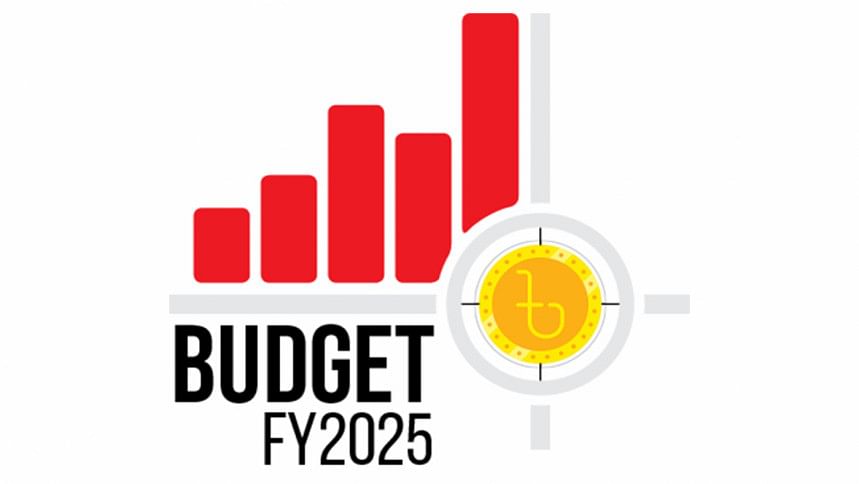Economist questions growth and inflation targets for FY25

It may not be possible to simultaneously achieve both high growth and ensure macroeconomic stability as outlined in the proposed budget for the upcoming fiscal year, an expert said yesterday.
Economist MA Razzaque said the policy intent in the finance minister's budget speech was clear in identifying the challenges, particularly in emphasising the need to contain inflation.
"There is no denying that Bangladesh has consistently achieved robust GDP growth for a long time. However, in light of the pressing need to address macroeconomic challenges, the strategy of stimulating economic activity through increased public spending presents a complex dilemma," he said.
He was presenting the keynote paper at a seminar, titled "FY25 Budget: An Assessment", organised by Research and Policy Integration for Development (RAPID) at the Jatiya Press Club in the capital.
Razzaque, chairman of RAPID, said some of the proposed measures suggest there is an aim to balance the dual objectives of managing growth and development ambitions while reinforcing stabilisation efforts.
However, in the end, it appears that, much like in previous years, the policy approach to those problems remains insufficient and lacks the decisive action needed to address the issues effectively, he said.
Razzaque also said that the budget deficit proposed for FY25 remained largely unchanged from FY24 at 4.6 percent of GDP.
So, even though there is a renewed emphasis on addressing rising price levels, there is no policy intent to reduce the budget deficit, which is known to be an important factor in inflation management, he added.
"Then there is the fundamental question of whether it is possible to achieve the high growth rate set for FY25 at 6.75 percent with the current inflation level of 10 percent," Razzaque said, adding that the proposed budget set the target to reduce inflation to 6.5 percent.
He said restoring economic stability is intrinsically linked with the government's ability to mobilise sufficient revenue.
But despite setting ambitious tax collection targets annually, those goals often remain elusive.
Binayak Sen, director-general of the Bangladesh Institute of Development Studies, said the government has adjusted policies based on global and local conditions.
He pointed out that the foreign exchange regime has been made almost market-based, and the interest rate control has been withdrawn.
However, Sen expressed his disappointment over the universal pension scheme, saying that there was a problem from both the demand and supply sides.
"The government should think about it."
In the proposed budget for the upcoming fiscal year, an ambitious revenue collection target of Tk 541,000 crore has been set, which is 13.2 percent higher than that in the revised budget of FY24, Razzaque said.
Additionally, the National Board of Revenue (NBR) has been tasked with collecting about 89 percent of the total revenue.
But that may not be achievable, according to Razzaque, especially since the tax authority could meet only 63 percent of its revenue collection target in FY24.
Speaking about the budget deficit, he said the annual development programme (ADP) spending had been fully financed through the budget deficit in recent years, with reliance on both domestic and external borrowing.
As external borrowing has been a critical source of financiering for the fiscal deficit, outstanding external debt has surged, recently surpassing $100 billion, which would be alarming in any normal situation.
Razzaque added that the government could have tried to contain inflation by reducing the fiscal deficit and should also have increased the allocation of open market sales programmes a little.
"Overall, our challenges have been identified. But policy direction still remains unclear. We could have made the fiscal policy more consistent, especially the monetary policy," he remarked.
"We have to overcome these challenges before our LDC graduation. We need to stabilise the economy. Otherwise, we cannot prepare for LDC graduation."
Mashiur Rahman, economic affairs adviser to the prime minister, M Abu Eusuf, executive director of RAPID, Ashraf Ahmed, president of the Dhaka Chamber of Commerce & Industry, and Shams Mahmud, director of Bangladesh Garment Manufacturers and Exporters Association, also spoke.

 For all latest news, follow The Daily Star's Google News channel.
For all latest news, follow The Daily Star's Google News channel. 



Comments